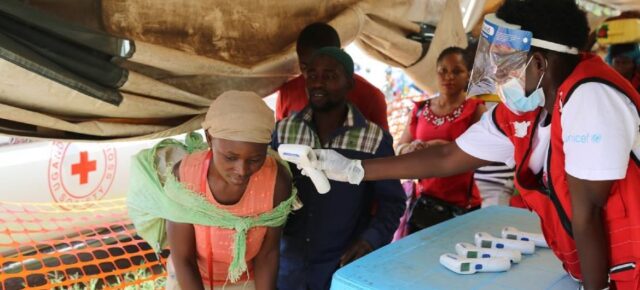The World Health Organisation and the Ugandan Ministry of Health declared the end of the outbreak of the Ebola virus on January 11, 2023, after no infections had been detected for 42 days. Uganda breathed a sigh of relief with the outbreak’s end, owing to its ongoing efforts to prevent and control, identify contact tracing and infections, and expand surveillance, all while stepping up efforts to place a strong response across the nine affected districts. Major credit goes to the communities, who not only understood the importance of doing what was needed to end the outbreak but also took action for the same.
Since the Ebola outbreak, 164 people have been infected, 55 have died as a result of the virus, and another 22 have died as a result of the virus. The last victim of the virus was a baby who was stillborn at 28 weeks after the mother was infected with the virus, but she soon recovered.
Challenges Faced to Control the Outbreak
Despite the end of Ebola, the effects can last for years and include fatigue, headaches, muscle and joint pains, and eye problems. The survivors of Ebola may contain active viruses in parts of their bodies, which can increase the probability of sparking a new outbreak.
The government appreciated the local health workers, global health partners, and front-line workers who worked countless hours to put an end to the outbreak. This was not the first outbreak of a virus on the African continent, but its timing along with COVID-19 made it a more challenging task. The pandemic, the virus, the flood of misinformation, and the dying trust of the citizens of Uganda in the health officials made it extremely difficult to convince patients to come to hospitals for care.
Another challenge was the lack of knowledge about the new type of Ebola virus that was causing the outbreak, also known as the Sudan strain. There were already existing vaccines and medications for the Ebola virus in Zaire, but there were no such treatments in place for the virus in Sudan. The virus was transmitted from wild animals and spread through direct contact; the symptoms include fever and vomiting, accompanied by internal and external bleeding.
Role Played by the WHO
The World Health Organisation helped track more than 4000 people who came in contact with people infected with the Ebola virus, after which they were monitored for 21 days before clearing them. They also provided $6.5 million for the response to the virus and another $3 million to support the six neighbouring countries.
They also deployed experts and provided training in contact tracing and patient care. They also built isolation and treatment centres and provided laboratory testing kits, along with steady supplies of personal protective equipment for the frontline workers. WHO also mentioned that Uganda’s long experience of dealing with epidemics came in handy and helped in rapidly strengthening the critical areas of response.









